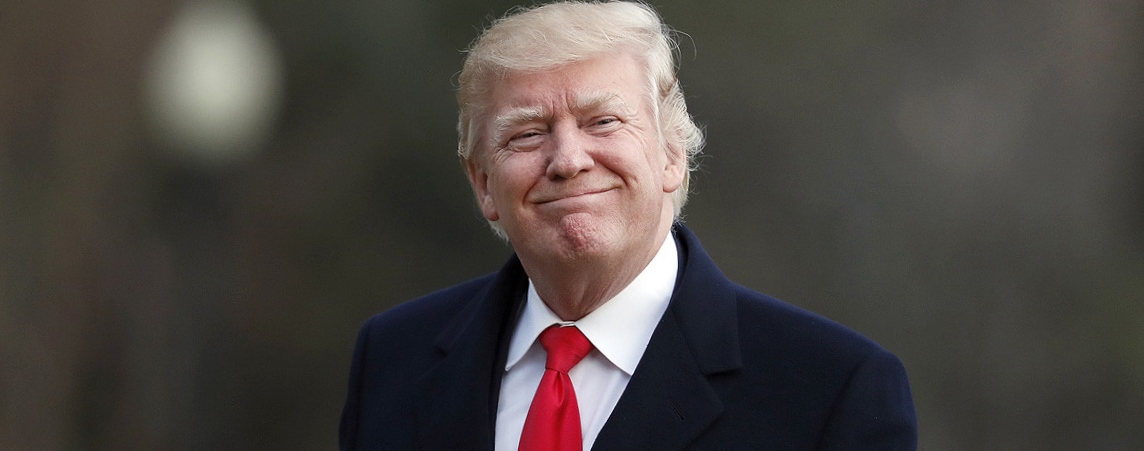Trump determines ZTE’s future
June 7, 2018 | Expert Insights

As US President Donald Trump looks to ease penalties levied against ZTE Corp, Washington lawmakers on both sides of the aisle are trying to dissuade him. However, there are little options for the US Congress to prevent this from taking place.
ZTE Corp., a multi-national telecommunications company, has been accused of conducting espionage activities on behalf of the Chinese government.
Background
Current US President Donald Trump has been vocally critical of China. He blames the country for the loss of jobs within the US. He has often criticised the “very unfair and one-sided” trade relationship. In 2017, China’s trade surplus with the United States was $347 billion.
Washington has indicated that technology and telecommunications is an issue of national security. The US has banned a number of Chinese companies from making deals with US tech companies, including Huawei and Alibaba. The US has blocked Chinese efforts to acquire overseas semiconductors such as Xcerra, Lattice Semiconductor, and Aixtron. Washington’s “Section 301” investigation is currently inspecting alleged Chinese theft of US intellectual property. The US treasury is also investigating whether to use the 1977 International Emergency Economic Powers Act (IEEPA) to prevent Chinese companies from investing in sensitive US industries including 5G communications, semiconductors, and robotics.
In recent months, there have been several reports surrounding an ongoing trade war between US and China. These rumors were further solidified last month, when Trump announced global import tariffs of 25% on steel, and China initiated retaliation. The US has imposed tariffs worth over US$150 billion on Chinese goods. In response, China responded with US$50 billion worth of tariffs.
In April, Washington slapped the Chinese multinational telecommunications equipment and systems company, ZTE, with a seven-year ban on purchases of crucial American technology. The sanctions were a result of the company illegally shipping US technology to Iran.
Analysis
In the past, the Pentagon had expressed concerns that there was an “unacceptable risk” posed by the Chinese tech giant ZTE. Thus, in April of this year, the US banned sales of ZTE’s cell phones on military bases. The same month, British officials cautioned that using ZTE equipment was also problematic and national security concerns “cannot be mitigated.”
However, despite these warnings, US President Donald Trump announced that he was working with Chinese President Xi Jinping to bring ZTE “back into business.” “ZTE, the large Chinese phone company, buys a big percentage of individual parts from U.S. companies. This is also reflective of the larger trade deal we are negotiating with China and my personal relationship with President Xi,” the President wrote on Twitter. Earlier this month, ZTE announced that it had shut down its major US operations sanctions. ZTE employs approximately 75,000 people worldwide.
He also added, “President Xi of China, and I, are working together to give massive Chinese phone company, ZTE, a way to get back into business, fast. Too many jobs in China lost. Commerce Department has been instructed to get it done!”
It is now being reported that despite strong bipartisan support to continue placing pressure on ZTE in Washington, there is little Congress can to do stop the President from relaxing penalties on the corporation.
ZTE has reportedly signed a “preliminary” deal with the Commerce Department. This includes a fine worth $1 billion plus “$400 million in escrow to cover any future violations.” Thus, the total amount of fines that the company will be paying will be around $1.7 billion. Washington lawmakers have expressed deep concerns regarding this development.
“Their technology is a national security threat, according to our defence and law enforcement authorities. Why on earth is the Trump administration considering relaxing penalties on such a bad actor?” Senate Democratic Leader Chuck Schumer said on Wednesday as he opened the day’s legislative session.
“This is where you have unanimity between both the Obama and Trump administration officials talking about ZTE and Huawei — this is a national security concern,” Sen. Mark Warner (D-Va.), the Intelligence panel’s ranking member, told POLITICO. “You don’t trade that away in an off-again, on-again conflict with China.”
“The concern is you have big telecom backbone manufacturers and the Chinese government uses one of them for espionage purposes, why wouldn’t they use the other?” said James Lewis, a cybersecurity expert at the Centre for Strategic and International Studies and a former Commerce Department official, referring to past allegations against Huawei.
For its part, Huawei has denied that it works with the Chinese government on any form of espionage. In a statement the company noted, “We remain committed to openness and transparency in everything we do and want to be clear that no government has ever asked us to compromise the security or integrity of any of our networks or devices.”
Assessment
Our assessment is that US President Donald Trump is looking to ease penalties against ZTE in hopes of striking a larger and more profitable trade deal with China. However, so far it is unclear what China has offered him to ignore the counsel of his own national security experts. This deal could either prove to be highly profitable for the US or it could make it more vulnerable to bad faith actors.








Comments